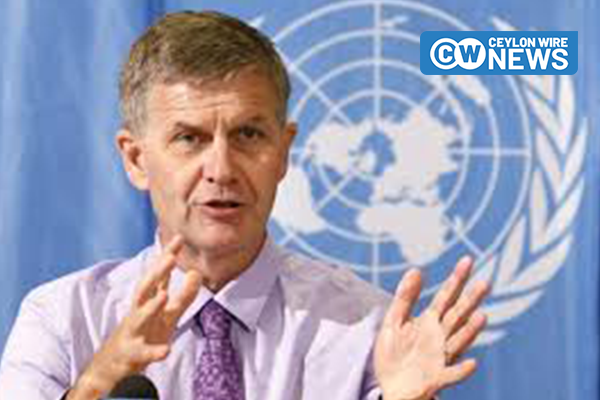The sweeping electoral victory of the National People’s Power (NPP), led by President Anura Kumara Dissanayake, marks a seismic shift in Sri Lankan politics, according to Erik Solheim, the former Norwegian peace facilitator.
Describing the outcome as “an earthquake in Sri Lankan politics,” Solheim highlighted the NPP’s unprecedented rise as a transformative moment, particularly with its strong performance in Tamil-majority areas, signaling “a very strong call for a new start in ethnic relations.”
In an email interview with The Federal, Solheim, a former Norwegian diplomat and peace process pioneer, expressed optimism about the NPP’s anti-corruption stance but warned that rooting out corruption entirely would be a monumental challenge.
A Historic Shift
Solheim noted that for the first time, Sri Lankans have chosen a leader from outside the traditional political establishment. “The son of a laborer in Anuradhapura now leads the country,” he said, attributing this success to widespread public frustration over corruption, economic hardship, and disillusionment with the traditional elite.
Breakthrough in Tamil Regions
The NPP’s significant support in Tamil-majority regions, despite its roots in the Sinhalese-dominated leftist Janatha Vimukthi Peramuna (JVP), was termed “astonishing” by Solheim. He interpreted the vote as a rejection of divisive ethnic politics and a desire for peace and normalcy in the north and east.
While the JVP historically opposed devolution and supported a unitary state, the NPP’s modern approach appears to have bridged ethnic divides. Solheim called this a “historic shift” if the party can sustain Tamil support through inclusive policies.
Economic Challenges Ahead
Solheim emphasized the importance of economic reforms, urging the government to negotiate better terms with the International Monetary Fund (IMF) and implement strategies for equitable growth. Comparing Dissanayake’s leadership to Brazil’s President Lula da Silva, he suggested that a balance between pro-poor policies and business-friendly initiatives could cement the NPP’s position as a long-term political force.
Lessons for the Left
Solheim highlighted the broader implications of the NPP’s success, saying it demonstrated that left-wing parties could thrive by adopting modern, inclusive strategies and policies with mass appeal. He contrasted this with the decline of traditional leftist parties, such as the Communist Party of India (Marxist) in West Bengal.
A Message for the President
As a long-time observer of Sri Lanka, Solheim advised President Dissanayake to prioritize economic and ethnic inclusivity. “Uplifting the poor is crucial across all ethnic groups,” he said, urging the president to respond positively to calls from Tamils and Muslims for equal rights and autonomy.
Looking ahead, Solheim expressed hope that Sri Lanka could reclaim its status as a beacon in Asia through sustained economic growth and inclusive governance.









